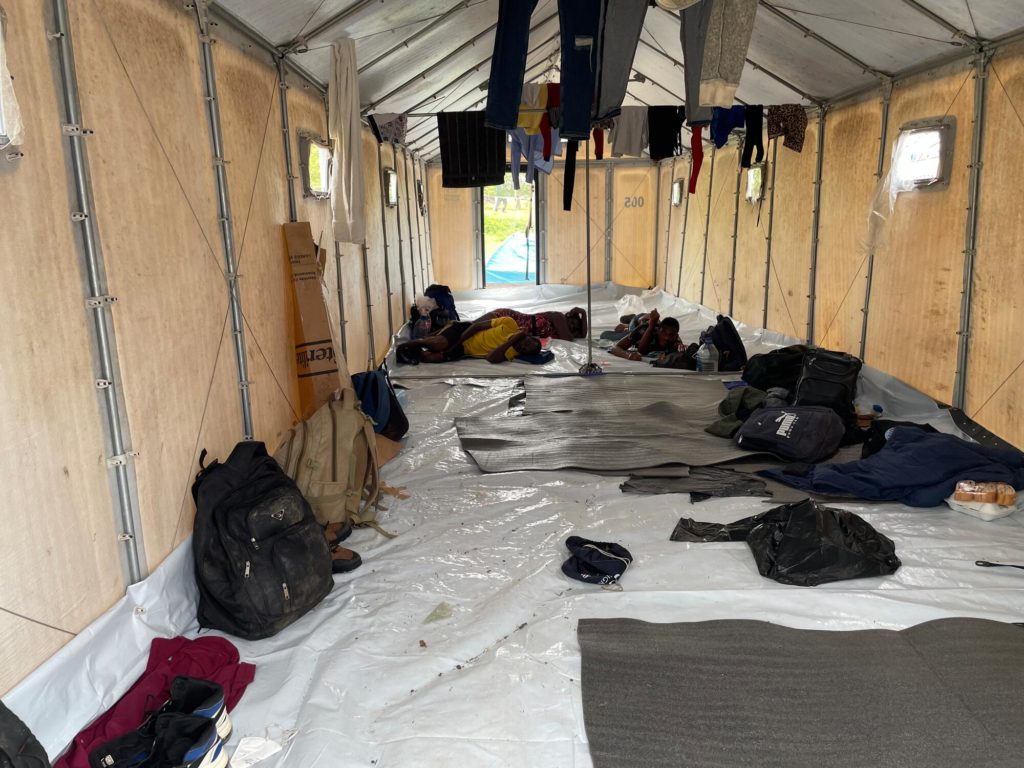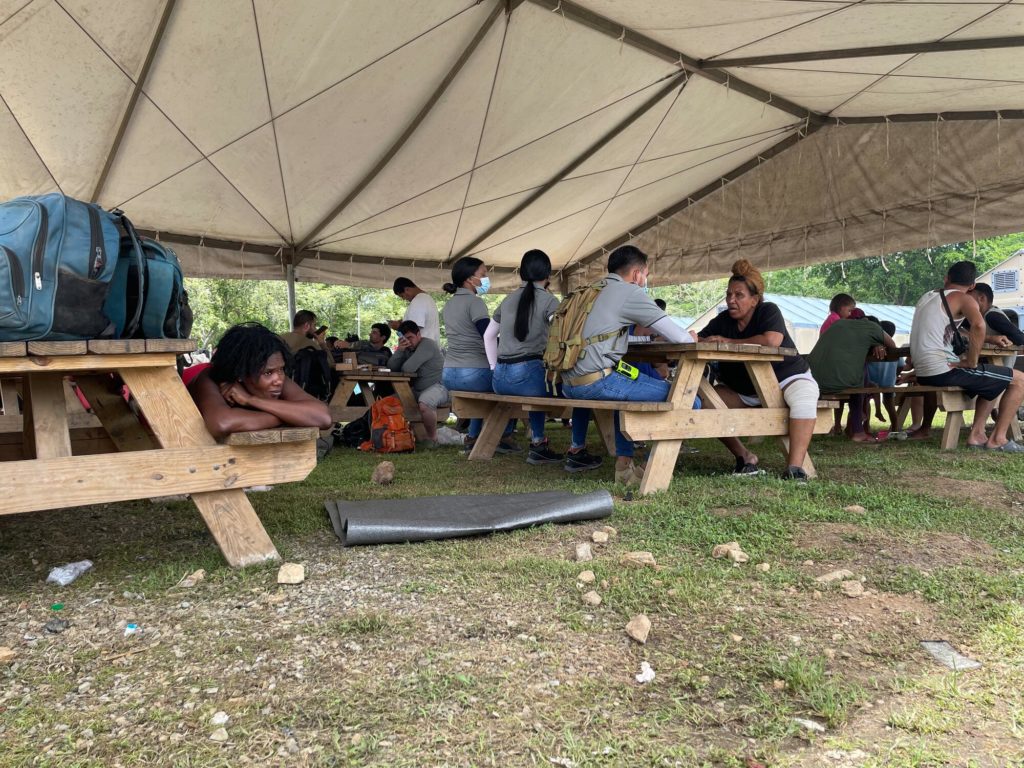Conditions are deteriorating for migrants arriving at reception centres in the province of Darién, Panama. Médecins Sans Frontières (MSF) provides medical and mental healthcare at the San Vicente Migrant Reception Centre, where approximately 300 migrants arrive each day, and we have witnessed huge gaps in protection and basic emergency services at the centre.
Safe routes must be established for migrants between Colombia and Panama, medical care must be provided at the first point of arrival and the conditions in reception centres must be improved.

“The conditions at the reception centres are inadequate,” says Rabia Ben Ali, MSF’s coordinator in Panama. “Every day, hundreds of people arrive in Canaán Membrillo, the first village in Panama after crossing the dangerous Darién Gap, but they do not receive any medical care there.”
“Instead they are taken three hours by boat to the San Vicente Migrant Reception Centre where services are insufficient,” says Ben Ali.
A new route brings people to Canaán Membrillo, where our teams are still waiting for the necessary authorisation to work. Last year, they arrived in the town of Bajo Chiquito instead, where MSF and the Ministry of Health provided medical care.
By the time MSF teams see victims of sexual violence it is too late to provide them with treatments that should be administered within 72 hours of an assault, such as prophylaxis to prevent infections like HIV, or emergency contraception to prevent pregnancy.
In recent weeks, the number of people who have not received timely care after sexual violence has increased. The Panamanian authorities should urgently establish mechanisms to detect victims of sexual violence in Canaán Membrillo and prevent attacks in the Darién Gap.
“The conditions of the San Vicente facilities must also be improved,” says Ben Ali. “Shelters are unavailable and children and pregnant women sleep on the floor. The sanitary conditions are also poor.”

In April, MSF teams treated 78 patients a day on average, mostly for skin diseases and body aches.
MSF’s mental health team also treats an average of six patients a day for conditions like acute stress, depressive episodes, anxiety, and grief from the death of family members. These conditions are often caused by the experiences people have while crossing the Darién Gap.
The number of people crossing the Darién Gap has increased in March and April, as have the number of robberies and sexual assaults along the route. Between January and the first week of May 2022, MSF teams have treated 89 people for sexual violence. In comparison, we treated 328 people for sexual violence from April to December 2021.












